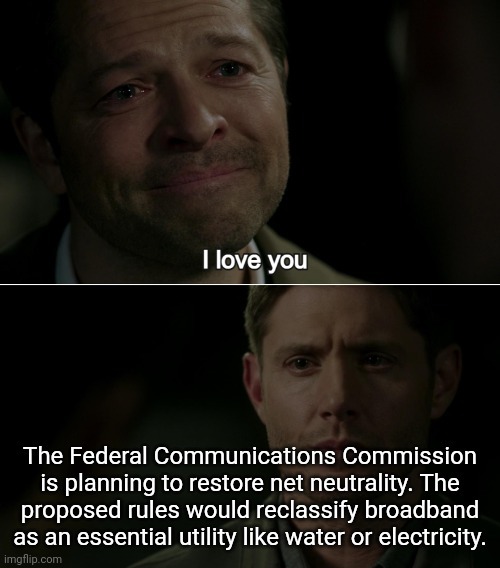#Federated
Text
Matt Mullenweg is probably the ideal web company CEO
Automattic has been running for 17 years. The company is home to nearly two dozen brands and products powering or leveraging the web, including WordPress, WordPress VIP, WooCommerce, Jetpack, Simplenote, Day One, PocketCasts, and Tumblr.
When Automattic purchased Tumblr, they somehow managed to pay just $3 million from Verizon who got it as part of its acquisition of Yahoo. Tumblr was a billion dollar company at one point and since 2019 it belongs to a multibillion dollar company.
The transaction cost for us buying Tumblr was de minimis. But it was a deal in which we took on all of its liabilities and all of its legal cases, we kept all the employees and all the costs to run it. Tumblr was, and still is, burning quite a bit of cash.
Matt said Automattic was prepared to pay $100 million but they managed to only spend $3 million. Sounds like a steal? Well, in the three years since the acquisition Tumblr was being cleaned up from the inside. 85% of the team joined after the acquisition and he’s had to reorganize the company to reassign staff because Tumblr has to downsize to 50-60 people to match their revenue before they can go up again.
From the interview it sounded like he didn’t let people go but reassigned them to the other products under Automattic.
Matt understands that the web is a decentralized network built on protocols. He also understands talent is also decentralized. Automattic allows its staff to work from anywhere and no longer has a physical office since shutting down its headquarters in 2017. Everyone who works at WordPress (even Matt) has to spend time handling customer support to understand their pain points.
Understanding what decentralized entails is core to Matt’s goals for the web. It’s why the idea of federating Tumblr and WordPress sites and pages and allow those sites and pages to be connected to join the federated network and become the social web is one of the company’s top priorities and when you run a social web company, content moderation is key.
I would say that it is about 20 percent pruning out the bad stuff as if you’re weeding a garden and about 80 percent encouraging the things that you want to grow. It definitely needs to be a long-term thing. You need to water it every day, but the results are going to happen over months or years.
Tumblr recently reopened itself to adult content but it’s doing so in a more careful and controlled manner to accommodate the needs of those working or with interest in the adult industry and those wishing to keep their neighborhood safe for children and acceptable at work.
Tumblr, WordPress, and Automattic may not be as glitzy and glamorous as other major web companies but more than 40% of websites run on WordPress today and they’re quietly marching towards 80% by embracing openness and decentralization.
When TechCrunch interviewed Matt as the new CEO of Automattic in 2014, he said, “The power of the web is not in centralization, it’s not in closed systems or anything like that. It’s in its open nature and that’s what allowed it to flourish for the first 10 or 15 years”
4 notes
·
View notes
Text



actually quite embarrassed to admit how much the upcoming PixelFed iOS app's experience is changed by today's addition of a dark mode. other stuff too! coming along incredibly well.
3 notes
·
View notes
Text
Mastodon Peertube Pixelfed: Rasily Replace Twitter Instagram And YouTube
Mastodon Peertube Pixelfed: Rasily Replace Twitter Instagram And YouTube
Mastodon, Peertube, Pixelfed: easily replace Twitter, Instagram and YouTube
youtube
View On WordPress
#Federated#Federation#Fediverse#Instagram#Mastodon#Mastodon Peertube Pixelfed: Rasily Replace Twitter Instagram And YouTube#Peertube#PixelFed#Rasily#Social Media#The Linux Experiment#Twitter#Video#YouTube
1 note
·
View note
Text

source 1
source 2
#destiel meme#destiel meme news#united states#us news#news#net neutrality#internet#broadband#fcc#federal communications commission
99K notes
·
View notes
Text
https://ar.al/2020/08/07/what-is-the-small-web/
What is the Small Web?
1 note
·
View note
Text
the Federation itself as a concept is so funny because the founding members are
the Vulcans, who have been friends with humanity for years but don't seem to actually like them all that much, instead regarding them with a sort of perverse fascination usually reserved for virology labs
the Andorians, who were fighting the Vulcans for like a hundred years
the Tellarites, who don't like any of these people and whose cultural trait is arguing, and
humans, whom nobody knew existed until last century when they shot themselves into space on a heavily modified nuke, invented world peace and won a fight with the nearest imperial superpower
like imagine you're the Romulan Empire and these weird monkeys who've barely figured out interstellar travel show up on your doorstep in the equivalent of a shipping container with missiles strapped to it, kick your ass in front of everybody, and then start a friendship club with 3 of your neighbours who all hated each others' guts until like a year ago. now I understand why every Romulan on the show is so angry
25K notes
·
View notes
Text
Open-source moderation
Bluesky introduces open-source, collaborative moderation for federated social media websites:
Bluesky was created to put users and communities in control of their social spaces online. The first generation of social media platforms connected the world, but ended up consolidating power in the hands of a few corporations and their leaders. Our online experience doesn’t have to depend on…

View On WordPress
1 note
·
View note
Text

Kutmusic ora ha un account anche su Mastodon! Kutmusic now has an account on Mastodon! -> https://mastodon.social/@kutmusic
0 notes
Text
Federal regulators on Tuesday [April 23, 2024] enacted a nationwide ban on new noncompete agreements, which keep millions of Americans — from minimum-wage earners to CEOs — from switching jobs within their industries.
The Federal Trade Commission on Tuesday afternoon voted 3-to-2 to approve the new rule, which will ban noncompetes for all workers when the regulations take effect in 120 days [So, the ban starts in early September, 2024!]. For senior executives, existing noncompetes can remain in force. For all other employees, existing noncompetes are not enforceable.
[That's right: if you're currently under a noncompete agreement, it's completely invalid as of September 2024! You're free!!]
The antitrust and consumer protection agency heard from thousands of people who said they had been harmed by noncompetes, illustrating how the agreements are "robbing people of their economic liberty," FTC Chair Lina Khan said.
The FTC commissioners voted along party lines, with its two Republicans arguing the agency lacked the jurisdiction to enact the rule and that such moves should be made in Congress...
Why it matters
The new rule could impact tens of millions of workers, said Heidi Shierholz, a labor economist and president of the Economic Policy Institute, a left-leaning think tank.
"For nonunion workers, the only leverage they have is their ability to quit their job," Shierholz told CBS MoneyWatch. "Noncompetes don't just stop you from taking a job — they stop you from starting your own business."
Since proposing the new rule, the FTC has received more than 26,000 public comments on the regulations. The final rule adopted "would generally prevent most employers from using noncompete clauses," the FTC said in a statement.
The agency's action comes more than two years after President Biden directed the agency to "curtail the unfair use" of noncompetes, under which employees effectively sign away future work opportunities in their industry as a condition of keeping their current job. The president's executive order urged the FTC to target such labor restrictions and others that improperly constrain employees from seeking work.
"The freedom to change jobs is core to economic liberty and to a competitive, thriving economy," Khan said in a statement making the case for axing noncompetes. "Noncompetes block workers from freely switching jobs, depriving them of higher wages and better working conditions, and depriving businesses of a talent pool that they need to build and expand."
Real-life consequences
In laying out its rationale for banishing noncompetes from the labor landscape, the FTC offered real-life examples of how the agreements can hurt workers.
In one case, a single father earned about $11 an hour as a security guard for a Florida firm, but resigned a few weeks after taking the job when his child care fell through. Months later, he took a job as a security guard at a bank, making nearly $15 an hour. But the bank terminated his employment after receiving a letter from the man's prior employer stating he had signed a two-year noncompete.
In another example, a factory manager at a textile company saw his paycheck dry up after the 2008 financial crisis. A rival textile company offered him a better job and a big raise, but his noncompete blocked him from taking it, according to the FTC. A subsequent legal battle took three years, wiping out his savings.
-via CBS Moneywatch, April 24, 2024
--
Note:
A lot of people think that noncompete agreements are only a white-collar issue, but they absolutely affect blue-collar workers too, as you can see from the security guard anecdote.
In fact, one in six food and service workers are bound by noncompete agreements. That's right - one in six food workers can't leave Burger King to work for Wendy's [hypothetical example], in the name of "trade secrets." (x, x, x)
Noncompete agreements also restrict workers in industries from tech and video games to neighborhood yoga studios. "The White House estimates that tens of millions of workers are subject to noncompete agreements, even in states like California where they're banned." (x, x, x)
The FTC estimates that the ban will lead to "the creation of 8,500 new businesses annually, an average annual pay increase of $524 for workers, lower health care costs, and as many as 29,000 more patents each year for the next decade." (x)
Clearer explanation of noncompete agreements below the cut.
Noncompete agreements can restrict workers from leaving for a better job or starting their own business.
Noncompetes often effectively coerce workers into staying in jobs they want to leave, and even force them to leave a profession or relocate.
Noncompetes can prevent workers from accepting higher-paying jobs, and even curtail the pay of workers not subject to them directly.
Of the more than 26,000 comments received by the FTC, more than 25,000 supported banning noncompetes.
#seriously cannot emphasize enough that this is going to be a huge deal for so so many people#it could seriously drag up wages in food and service industries in particular#especially in the long run#and also massively reshape tech and video game industries#do you have any idea how many game devs are legally not allowed to start their own studios? probably most of them#and that's about to change for the better!!#ftc#noncompete#united states#us politics#business#business news#biden administration#voting matters#democrats#federal trade commission#video game industry#game devs#fast food#fast food workers#labor#labor rights#workers rights#blue collar#service workers#good news#hope
2K notes
·
View notes
Text
#talkin#tik tok#jr#wwe#the rock#ken shamrock#triple h#wrestling#wwf#world wrestling entertainment#world wrestling federation#5k#10k
41K notes
·
View notes
Text











Wimbledon Final - Roger Federer v Novak Djokovic (2019) // Challengers (2024) dir. Luca Guadagnino // Challengers Screenwriter Justin Kuritzkes for GQ
#challengers#zendaya#mike faist#roger federer#mirka federer#tashi duncan#art donaldson#tennis tag#challengersedit#tennisedit#myedits#web weaving#they're even both sponsored by uniqlo. i love the little attention to detail
2K notes
·
View notes
Text
This is the reason I don't use tumblr as much as mastodon:
I want to see posts from smaller creators not posts with 100 or 1000+ reactions.
Tumblr doesn't have a new posts section it has trending, search, for you and all that bullshit.
It's also why I prefer Mastodon to twitter even pre-musk twitter doesn't show you new posts, it's all recommended shit.
So i probably will not use tumblr as often as I use mastodon, at least I won't stay in the app as much, because there is no new posts section only recommend bullshit.
I'll stick to my federated tab and locals if I do say so myself but I will post on here every so often or maybe I wont, that will depend.
#trending#reccommended#for you#bullshit#mastodon#locals#federated#new posts#small creators#tumblr#tumblr bullshit#fix tumblr
1 note
·
View note
Text
Why they're smearing Lina Khan

My god, they sure hate Lina Khan. This once-in-a-generation, groundbreaking, brilliant legal scholar and fighter for the public interest, the slayer of Reaganomics, has attracted more vitriol, mockery, and dismissal than any of her predecessors in living memory.
She sure must be doing something right, huh?
A quick refresher. In 2017, Khan — then a law student — published Amazon’s Antitrust Paradox in the Yale Law Journal. It was a brilliant, blistering analysis showing how the Reagan-era theory of antitrust (which celebrates monopolies as “efficient”) had failed on its own terms, using Amazon as Exhibit A of the ways in which post-Reagan antitrust had left Americans vulnerable to corporate abuse:
https://www.yalelawjournal.org/note/amazons-antitrust-paradox
The paper sent seismic shocks through both legal and economic circles, and goosed the neo-Brandeisian movement (sneeringly dismissed as “hipster antitrust”). This movement is a rebuke to Reaganomics, with its celebration of monopolies, trickle-down, offshoring, corporate dark money, revolving-door regulatory capture, and companies that are simultaneously too big to fail and too big to jail.
This movement has many proponents, of course — not just Khan — but Khan’s careful scholarship, combined with her encyclopedic knowledge of the long-dormant statutory powers that federal agencies had to make change, and a strategy for reviving those powers to protect Americans from corporate predators made her a powerful, inspirational figure.
When Joe Biden won the 2020 presidential election, he surprised everyone by appointing Khan to the FTC. It wasn’t just that she had such a radical vision — it was also that she lacked the usual corporate law experience that such an appointee would normally require (experience that would ensure that the FTC was helmed by people whose default view of the world is that it should be structured and regulated by powerful, wealthy people in corporate boardrooms).
Even more surprising was that Khan was made chair of the FTC, something that was only possible because a few Republican Senators broke with their party to support her candidacy:
https://www.senate.gov/legislative/LIS/roll_call_votes/vote1171/vote_117_1_00233.htm
These Republicans saw in Khan an ally in their fight against “woke” Big Tech. For these senators, the problem wasn’t that tech had got too big and powerful — it was that there were a few limited instances in which tech leaders failed to wield that power in the ways they preferred.
The Republican project is a matter of getting turkeys to vote for Christmas by doing a lot of culture war bullshit, cruelly abusing disfavored sexual and racial minorities. This wins support from low-information voters who’ll vote against their class interests and support more monopolies, more tax cuts for the rich, and more cuts to the services they rely on.
But while tech leaders are 100% committed to the project of permanent oligarchic takeover of every sphere of American life, they are less full-throated in their support for hateful, cruel discrimination against disfavored minorities (in this regard, tech leaders resemble the corporate wing of the Democrats, which is where we get the “Silicon Valley is a Democratic Party stronghold” narrative).
This failure to unquestioningly and unstintingly back culture war bullshit put tech leaders in the GOP’s crosshairs. Some GOP politicians actually believe in the culture war bullshit, and are grossly offended that tech is “woke.” Others are smart enough not to get high on their own supply, but worry that any tech obstruction in the bullshit culture wars will make it harder to get sufficient turkey votes for a big fat Christmas surprise.
Biden’s ceding of antitrust policy to the left wing of the party, combined with disaffected GOP senators viewing Khan as their enemy’s enemy, led to Khan’s historic appointment as FTC Chair. In that position, she was joined by a slate of Biden trustbusters, including Jonathan Kanter at the DoJ Antitrust Division, Tim Wu at the White House, and other important, skilled and principled fighters like Alvaro Bedoya (FTC), Rebecca Slaughter (FTC), Rohit Chopra (CFPB), and many others.
Crucially, these new appointees weren’t just principled, they were good at their jobs. In 2021, Tim Wu wrote an executive order for Biden that laid out 72 concrete ways in which the administration could act — with no further Congressional authorization — to blunt corporate power and insulate the American people from oligarchs’ abusive and extractive practices:
https://pluralistic.net/2021/08/13/post-bork-era/#manne-down
Since then, the antitrust arm of the Biden administration have been fuckin’ ninjas, Getting Shit Done in ways large and small, working — for the first time since Reagan — to protect Americans from predatory businesses:
https://pluralistic.net/2022/10/18/administrative-competence/#i-know-stuff
This is in marked contrast to the corporate Dems’ champions in the administration. People like Pete Buttigieg are heralded as competent
technocrats, “realists” who are too principled to peddle hopium to the base, writing checks they can’t cash. All this is cover for a King Log performance, in which Buttigieg’s far-reaching regulatory authority sits unused on a shelf while a million Americans are stranded over Christmas and whole towns are endangered by greedy, reckless rail barons straight out of the Gilded Age:
https://pluralistic.net/2023/01/10/the-courage-to-govern/#whos-in-charge
The contrast between the Biden trustbusters and their counterparts from the corporate wing is stark. While the corporate wing insists that every pitch is outside of the zone, Khan and her allies are swinging for the stands. They’re trying to make life better for you and me, by declaring commercial surveillance to be an unfair business practice and thus illegal:
https://pluralistic.net/2022/08/12/regulatory-uncapture/#conscious-uncoupling
And by declaring noncompete “agreements” that shackle good workers to shitty jobs to be illegal:
https://pluralistic.net/2022/02/02/its-the-economy-stupid/#neofeudal
And naturally, this has really pissed off all the right people: America’s billionaires and their cheerleaders in the press, government, and the hive of scum and villainy that is the Big Law/thinktank industrial-complex.
Take the WSJ: since Khan took office, they have published 67 vicious editorials attacking her and her policies. Khan is living rent-free in Rupert Murdoch’s head. Not only that, he’s given her the presidential suite! You love to see it.
These attacks are worth reading, if only to see how flimsy and frivolous they are. One major subgenre is that Khan shouldn’t be bringing any action against Amazon, because her groundbreaking scholarship about the company means she has a conflict of interest. Holy moly is this a stupid thing to say. The idea that the chair of an expert agency should recuse herself because she is an expert is what the physicists call not even wrong.
But these attacks are even more laughable due to who they’re coming from: people who have the most outrageous conflicts of interest imaginable, and who were conspicuously silent for years as the FTC’s revolving door admitted the a bestiary of swamp-creatures so conflicted it’s a wonder they managed to dress themselves in the morning.
Writing in The American Prospect, David Dayen runs the numbers:
Since the late 1990s, 31 out of 41 top FTC officials worked directly for a company that has business before the agency, with 26 of them related to the technology industry.
https://prospect.org/economy/2023-06-23-attacks-lina-khans-ethics-reveal-projection/
Take Christine Wilson, a GOP-appointed FTC Commissioner who quit the agency in a huff because Khan wanted to do things for the American people, and not their self-appointed oligarchic princelings. Wilson wrote an angry break-up letter to Khan that the WSJ published, presaging their concierge service for Samuel Alito:
https://www.wsj.com/articles/why-im-resigning-from-the-ftc-commissioner-ftc-lina-khan-regulation-rule-violation-antitrust-339f115d
For Wilson to question Khan’s ethics took galactic-scale chutzpah. Wilson, after all, is a commissioner who took cash money from Bristol-Myers Squibb, then voted to approve their merger with Celgene:
https://www.documentcloud.org/documents/4365601-Wilson-Christine-Smith-final278.html
Or take Wilson’s GOP FTC predecessor Josh Wright, whose incestuous relationship with the companies he oversaw at the Commission are so intimate he’s practically got a Habsburg jaw. Wright went from Google to the US government and back again four times. He also lobbied the FTC on behalf of Qualcomm (a major donor to Wright’s employer, George Mason’s Antonin Scalia Law School) after working “personally and substantially” while serving at the FTC.
George Mason’s Scalia center practically owns the revolving door, counting fourteen FTC officials among its affliates:
https://campaignforaccountability.org/ttp-investigation-big-techs-backdoor-to-the-ftc/
Since the 1990s, 31 out of 41 top FTC officials — both GOP appointed and appointees backed by corporate Dems — “worked directly for a company that has business before the agency”:
https://www.citizen.org/article/ftc-big-tech-revolving-door-problem-report/
The majority of FTC and DoJ antitrust lawyers who served between 2014–21 left government service and went straight to work for a Big Law firm, serving the companies they’d regulated just a few months before:
https://therevolvingdoorproject.org/wp-content/uploads/2022/06/The-Revolving-Door-In-Federal-Antitrust-Enforcement.pdf
Take Deborah Feinstein, formerly the head of the FTC’s Bureau of Competition, now a partner at Arnold & Porter, where she’s represented General Electric, NBCUniversal, Unilever, and Pepsi and a whole medicine chest’s worth of pharma giants before her former subordinates at the FTC. Michael Moiseyev who was assistant manager of FTC Competition is now in charge of mergers at Weil Gotshal & Manges, working for Microsoft, Meta, and Eli Lilly.
There’s a whole bunch more, but Dayen reserves special notice for Andrew Smith, Trump’s FTC Consumer Protection boss. Before he was put on the public payroll, Smith represented 120 clients that had business before the Commission, including “nearly every major bank in America, drug industry lobbyist PhRMA, Uber, Equifax, Amazon, Facebook, Verizon, and a variety of payday lenders”:
https://www.citizen.org/sites/default/files/andrew_smith_foia_appeal_response_11_30.pdf
Before Khan, in other words, the FTC was a “conflict-of-interest assembly line, moving through corporate lawyers and industry hangers-on without resistance for decades.”
Khan is the first FTC head with no conflicts. This leaves her opponents in the sweaty, desperate position of inventing conflicts out of thin air.
For these corporate lickspittles, Khan’s “conflict” is that she has a point of view. Specifically, she thinks that the FTC should do its job.
This makes grifters like Jim Jordan furious. Yesterday, Jordan grilled Khan in a hearing where he accused her of violating an ethics official’s advice that she should recuse herself from Big Tech cases. This is a talking point that was created and promoted by Bloomberg:
https://www.bloomberg.com/news/articles/2023-06-16/ftc-rejected-ethics-advice-for-khan-recusal-on-meta-case
That ethics official, Lorielle Pankey, did not, in fact, make this recommendation. It’s simply untrue (she did say that Khan presiding over cases that she has made public statements about could be used as ammo against her, but did not say that it violated any ethical standard).
But there’s more to this story. Pankey herself has a gigantic conflict of interest in this case, including a stock portfolio with $15,001 and $50,000 in Meta stock (Meta is another company that has whined in print and in its briefs that it is a poor defenseless lamb being picked on by big, mean ole Lina Khan):
https://www.wsj.com/articles/ethics-official-owned-meta-stock-while-recommending-ftc-chair-recuse-herself-from-meta-case-8582a83b
Jordan called his hearing on the back of this fake scandal, and then proceeded to show his whole damned ass, even as his GOP colleagues got into a substantive and even informative dialog with Khan:
https://prospect.org/power/2023-07-14-jim-jordan-misfires-attacks-lina-khan/
Mostly what came out of that hearing was news about how Khan is doing her job, working on behalf of the American people. For example, she confirmed that she’s investigating OpenAI for nonconsensually harvesting a mountain of Americans’ personal information:
https://www.ft.com/content/8ce04d67-069b-4c9d-91bf-11649f5adc74
Other Republicans, including confirmed swamp creatures like Matt Gaetz, ended up agreeing with Khan that Amazon Ring is a privacy dumpster-fire. Nobodies like Rep TomM assie gave Khan an opening to discuss how her agency is protecting mom-and-pop grocers from giant, price-gouging, greedflation-drunk national chains. Jeff Van Drew gave her a chance to talk about the FTC’s war on robocalls. Lance Gooden let her talk about her fight against horse doping.
But Khan’s opponents did manage to repeat a lot of the smears against her, and not just the bogus conflict-of-interest story. They also accused her of being 0–4 in her actions to block mergers, ignoring the huge number of mergers that have been called off or not initiated because M&A professionals now understand they can no longer expect these mergers to be waved through. Indeed, just last night I spoke with a friend who owns a medium-sized tech company that Meta tried to buy out, only to withdraw from the deal because their lawyers told them it would get challenged at the FTC, with an uncertain outcome.
These talking points got picked up by people commenting on Judge Jacqueline Scott Corley’s ruling against the FTC in the Microsoft-Activision merger. The FTC was seeking an injunction against the merger, and Corley turned them down flat. The ruling was objectively very bad. Start with the fact that Corley’s son is a Microsoft employee who stands reap massive gains in his stock options if the merger goes through.
But beyond this (real, non-imaginary, not manufactured conflict of interest), Corley’s judgment and her remarks in court were inexcusably bad, as Matt Stoller writes:
https://www.thebignewsletter.com/p/judge-rules-for-microsoft-mergers
In her ruling, Corley explained that she didn’t think Microsoft would abuse the market dominance they’d gain by merging their giant videogame platform and studio with one of its largest competitors. Why not? Because Microsoft’s execs pinky-swore that they wouldn’t abuse that power.
Corely’s deference to Microsoft’s corporate priorities goes deeper than trusting its execs, though. In denying the FTC’s motion, she stated that it would be unfair to put the merger on hold in order to have a full investigation into its competition implications because Microsoft and Activision had set a deadline of July 18 to conclude things, and Microsoft would have to pay a penalty if that deadline passed.
This is surreal: a judge ruled that a corporation’s radical, massive merger shouldn’t be subject to full investigation because that corporation itself set an arbitrary deadline to conclude the deal before such an investigation could be concluded. That’s pretty convenient for future mega-mergers — just set a short deadline and Judge Corely will tell regulators that the merger can’t be investigated because the deadline is looming.
And this is all about the future. As Stoller writes, Microsoft isn’t exactly subtle about why it wants this merger. Its own execs said that the reason they were spending “dump trucks” of money buying games studios was to “spend Sony out of business.”
Now, maybe you hate Sony. Maybe you hate Activision. There’s plenty of good reason to hate both — they’re run by creeps who do shitty things to gamers and to their employees. But if you think that Microsoft will be better once it eliminates its competition, then you have the attention span of a goldfish on Adderall.
Microsoft made exactly the same promises it made on Activision when it bought out another games studio, Zenimax — and it broke every one of those promises.
Microsoft has a long, long, long history of being a brutal, abusive monopolist. It is a convicted monopolist. And its bad conduct didn’t end with the browser wars. You remember how the lockdown turned all our homes into rent-free branch offices for our employers? Microsoft seized on that moment to offer our bosses keystroke-and-click level surveillance of our use of our own computers in our own homes, via its Office365 bossware product:
https://pluralistic.net/2020/11/25/the-peoples-amazon/#clippys-revenge
If you think a company that gave your boss a tool to spy on their employees and rank them by “productivity” as a prelude to firing them or cutting their pay is going to treat gamers or game makers well once they have “spent the competition out of business,” you’re a credulous sucker and you are gonna be so disappointed.
The enshittification play is obvious: use investor cash to make things temporarily nice for customers and suppliers, lock both of them in — in this case, it’s with a subscription-based service similar to Netflix’s — and then claw all that value back until all that’s left is a big pile of shit.
The Microsoft case is about the future. Judge Corely doesn’t take the future seriously: as she said during the trial, “All of this is for a shooter videogame.” The reason Corely greenlit this merger isn’t because it won’t be harmful — it’s because she doesn’t think those harms matter.
But it does, and not just because games are an art form that generate billions of dollars, employ a vast workforce, and bring pleasure to millions. It also matters because this is yet another one of the Reaganomic precedents that tacitly endorses monopolies as efficient forces for good. As Stoller writes, Corley’s ruling means that “deal bankers are sharpening pencils and saying ‘Great, the government lost! We can get mergers through everywhere else.’ Basically, if you like your high medical prices, you should be cheering on Microsoft’s win today.”
Ronald Reagan’s antitrust has colonized our brains so thoroughly that commentators were surprised when, immediately after the ruling, the FTC filed an appeal. Don’t they know they’ve lost? the commentators said:
https://gizmodo.com/ftc-files-appeal-of-microsoft-activision-deal-ruling-1850640159
They echoed the smug words of insufferable Activision boss Mike Ybarra: “Your tax dollars at work.”
https://twitter.com/Qwik/status/1679277251337277440
But of course Khan is appealing. The only reason that’s surprising is that Khan is working for us, the American people, not the giant corporations the FTC is supposed to be defending us from. Sure, I get that this is a major change! But she needs our backing, not our cheap cynicism.
The business lobby and their pathetic Renfields have hoarded all the nice things and they don’t want us to have any. Khan and her trustbuster colleagues want the opposite. There is no measure so small that the corporate world won’t have a conniption over it. Take click to cancel, the FTC’s perfectly reasonable proposal that if you sign up for a recurring payment subscription with a single click, you should be able to cancel it with a single click.
The tooth-gnashing and garment-rending and scenery-chewing over this is wild. America’s biggest companies have wheeled out their biggest guns, claiming that if they make it too easy to unsubscribe, they will lose money. In other words, they are currently making money not because people want their products, but because it’s too hard to stop paying for them!
https://www.theregister.com/2023/07/12/ftc_cancel_subscriptions/
We shouldn’t have to tolerate this sleaze. And if we back Khan and her team, they’ll protect us from these scams. Don’t let them convince you to give up hope. This is the start of the fight, not the end. We’re trying to reverse 40 years’ worth of Reagonmics here. It won’t happen overnight. There will be setbacks. But keep your eyes on the prize — this is the most exciting moment for countering corporate power and giving it back to the people in my lifetime. We owe it to ourselves, our kids and our planet to fight one.

If you’d like an essay-formatted version of this post to read or share, here’s a link to it on pluralistic.net, my surveillance-free, ad-free, tracker-free blog:
https://pluralistic.net/2023/07/14/making-good-trouble/#the-peoples-champion

[Image ID: A line drawing of pilgrims ducking a witch tied to a ducking stool. The pilgrims' clothes have been emblazoned with the logos for the WSJ, Microsoft, Activision and Blizzard. The witch's face has been replaced with that of FTC chair Lina M Khan.]
#pluralistic#amazon's antitrust paradox#lina khan#business lobby#lina m khan#ftc#federal trade commission#david dayen#microsoft#activision#blizzard#wsj#wall street journal#reaganomics#trustbusting#antitrust#mergers#merger to monopoly#gaming#xbox#matt stoller#the american prospect#jim jordan#click to cancel#robert bork#Judge Jacqueline Scott Corley#microsoft activision#fuckin' ninjas
6K notes
·
View notes
Text
hearing that tubbo wants to become a spy to find out more about the federation is so funny. yeah because espionage has historically gone great for you king
#icarus speaks#icarus liveblogs#absolutely NO issues or traumatic events in tubbo's cubiots' spy work#none at all#unrelated what do you think the federation thinks about festivals
4K notes
·
View notes
Text

what if the federation just really sucked at it's job
#qsmp#qsmp federation#qsmp cucurucho#qsmp fanart#my art#this is the most entertaining theory I've seen so far
3K notes
·
View notes
Text
Hybrid Blockchain - Type of Blockchain Technology

A hybrid blockchain is also known as a federated blockchain.
0 notes